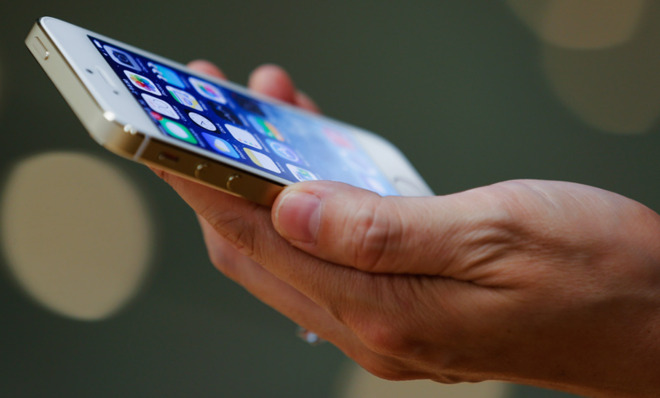Why you should change the default browser on your iPhone
Safari is feeling pretty dated

A free daily email with the biggest news stories of the day – and the best features from TheWeek.com
You are now subscribed
Your newsletter sign-up was successful
Upon its release in 2007, the iPhone fundamentally changed how we used the internet. For the first time it was effortless to scroll, pinch, double tap, and interact with a web page on a mobile device.
But seven years after the iPhone's release, the mobile browsing experience appears to have stalled. Most default browsers have small touch targets, hard-to-reach bookmarks, and other desktop equivalents that are simply shrunk down. These features need to be reimagined specifically for on-the-go browsing.
When Opera released its experimental browser Coast for the iPad last year, it suddenly became clear that the mobile browsing experience should be distinctively different than that of a desktop — streamlined and tremendously simple, but not dumbed down. Now with the release of Coast on the smaller-screened iPhone, that same premise is even more apparent.
The Week
Escape your echo chamber. Get the facts behind the news, plus analysis from multiple perspectives.

Sign up for The Week's Free Newsletters
From our morning news briefing to a weekly Good News Newsletter, get the best of The Week delivered directly to your inbox.
From our morning news briefing to a weekly Good News Newsletter, get the best of The Week delivered directly to your inbox.

Coast puts bookmarks or saved sites front and center with big icons, and gets rid of the back button and other functions that clutter up a small screen. But the real highlight of the app is a classic mobile web task: searching.
To launch search (or to type a direct URL), all you have to do is quickly swipe downward anywhere on the screen, rather than tap in a small specific spot. And while Google's Chrome familiarized the world with a single search/address bar, its mobile version still doesn't beat Coast's. As you type into Coast, it automatically suggests follow-up words, adding the top sites as icons that can easily be pinned to the home page. All this is done in a clean and beautiful aesthetic.
Another handy Chrome feature is the ability to connect directly to your desktop Chrome browser and sync open tabs from each device, making it easy to switch back and forth. Coast incorporates its syncing through iCloud. That means if you use Coast on your iPad and pin a new bookmark, it should show up when you pick up your phone.
Other mobile web browser alternatives aren't terrible, but none match the next generation experience that Coast creates. It's similar to how Mailbox built its app specifically for a mobile-first email experience, or how Instagram targeted mobile photography with its app.
A free daily email with the biggest news stories of the day – and the best features from TheWeek.com
There are, of course, reasons you might want to use some of these alternatives. Both Firefox and Dolphin on Android offer add-ons like ad-blockers, multiple ways to sync bookmarks, and language translation. Dolphin, specifically, is endlessly customizable with new colors and skins, all of which are only a tap away.
But the problem with mobile Safari and other alternatives is that shrinking down desktop browsers and making them touch-responsive doesn't enhance the experience at all. It's the reason Microsoft's early Windows mobile OS — complete with a "start" button — didn't satisfy users.
The Coast browser isn't perfect, of course. A minimalist interface means that many features are somewhat hidden. To get to the security information, for example, you'll need to tap on the bottom three dots, then click on the little "i" to display the extra information. Or to change the wallpaper in the app, you long-press until the option is presented. None of this is particularly obvious.
But while Coast might not be to everyone's taste, it does open up the possibilities of what a mobile web browser can do. And it also shows how Safari and other browsers may be failing you in ways you didn't even realize.
Tyler Hayes is a freelance writer living in Southern California. He's just as obsessed with discovering new music as he is with trying new technology.
-
 Mixing up mixology: The year ahead in cocktail and bar trends
Mixing up mixology: The year ahead in cocktail and bar trendsthe week recommends It’s hojicha vs. matcha, plus a whole lot more
-
 Labor secretary’s husband barred amid assault probe
Labor secretary’s husband barred amid assault probeSpeed Read Shawn DeRemer, the husband of Labor Secretary Lori Chavez-DeRemer, has been accused of sexual assault
-
 Trump touts pledges at 1st Board of Peace meeting
Trump touts pledges at 1st Board of Peace meetingSpeed Read At the inaugural meeting, the president announced nine countries have agreed to pledge a combined $7 billion for a Gaza relief package